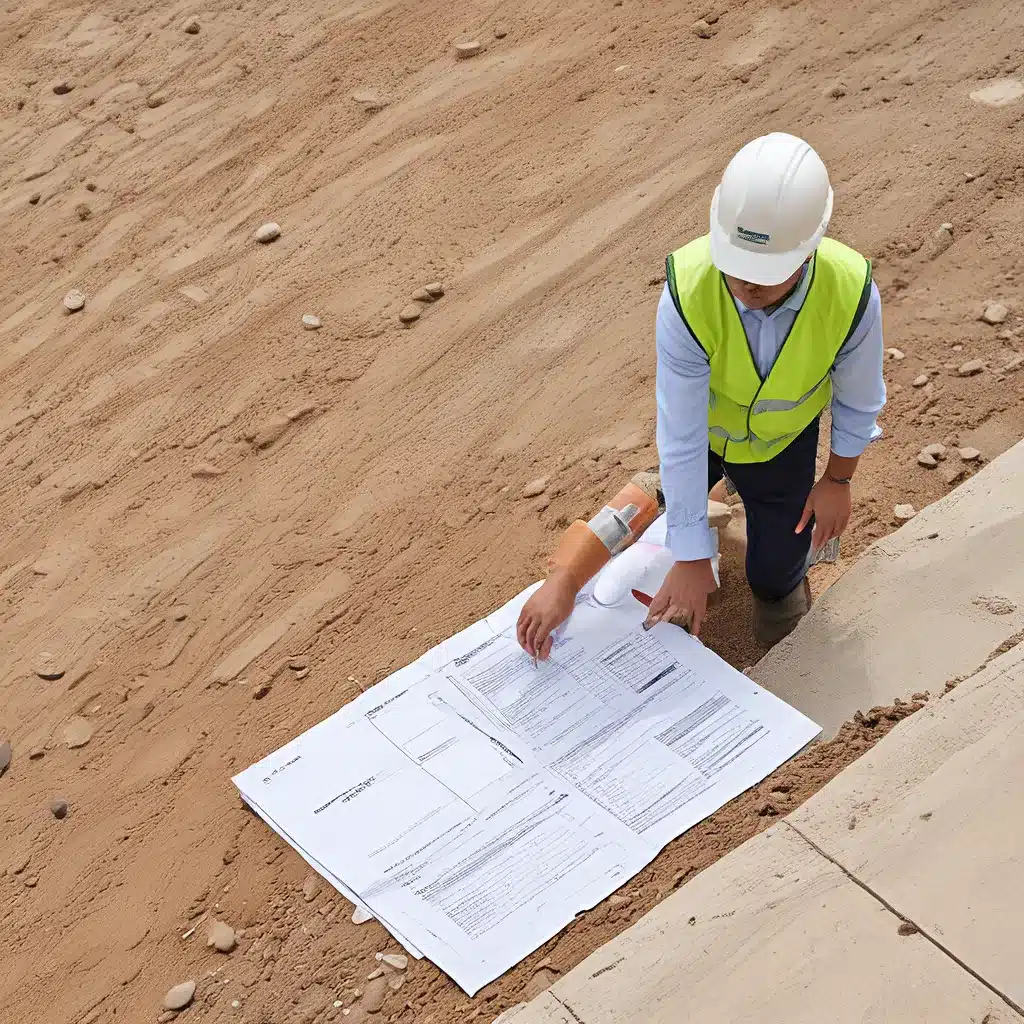
Optimizing Operations: Streamlining Efficiency in the Construction Sector
Buckle up, folks, because we’re about to embark on a journey that could completely revolutionize the way your construction business operates. Picture this: your fleet of trucks and heavy machinery working like a well-oiled machine, your projects running like clockwork, and your profit margins soaring higher than the skyscrapers you build. Sound too good to be true? Well, my friends, the key to unlocking this construction utopia lies in one simple solution: optimizing your operations.
The Construction Conundrum: Tackling the Toughest Challenges
As a general contractor, I’ve seen it all – the good, the bad, and the downright ugly when it comes to construction site shenanigans. From juggling multiple projects simultaneously to keeping a handle on ever-changing inventory and equipment, the construction industry is a veritable minefield of operational challenges. And let’s not even get started on the environmental concerns and skyrocketing costs that plague the sector.
But fear not, my fellow construction aficionados, because there is a light at the end of the tunnel. The secret to conquering these construction conundrums lies in the implementation of a construction-specific Enterprise Resource Planning (ERP) software solution. Now, I know what you’re thinking – “ERP? Isn’t that just for the big boys in the corporate world?” Well, my friends, let me tell you, the construction industry is catching up faster than a speeding bulldozer.
Embracing the ERP Revolution: Streamlining the Construction Sector
Picture this: a centralized database that acts as a single source of truth, gathering data from every nook and cranny of your business – from accounting to project management, inventory to field services. Sounds like a construction company’s dream, doesn’t it? Well, that’s precisely what a construction-specific ERP system can do for you.
These industry-tailored solutions are designed to tackle the unique challenges faced by construction businesses, incorporating specialized modules for project management, equipment tracking, and cost monitoring. Gone are the days of juggling multiple systems and spreadsheets, trying to piece together a coherent picture of your operations. With a construction ERP, you can say goodbye to the headaches and hello to a seamless, streamlined workflow.
The Unsung Heroes: Key Considerations for ERP Success
But hold on, it’s not as simple as just slapping an ERP system into your business and calling it a day. Oh no, my friends, there are a few key considerations to keep in mind for a successful implementation. First and foremost, it’s crucial to define your goals and objectives – are you looking to enhance project management efficiency? Optimize resource allocation? Improve cash flow and cost control? Clearly outlining these priorities will guide you in selecting the right ERP solution for your construction company.
Next, it’s time to do your homework – and I’m not just talking about a quick Google search. Nope, you’ll need to thoroughly research and evaluate different ERP vendors, considering factors like functionality, scalability, ease of use, and integration capabilities. Remember, the selected software should not only align with your current needs but also accommodate your future growth and industry requirements.
The Power of Collaboration: Engaging Key Stakeholders
But the real secret to ERP success? Involving your team every step of the way. That’s right, folks – from project managers to finance gurus, IT wizards to field supervisors, engaging your key stakeholders is the key to ensuring your construction ERP implementation is a roaring success.
By gathering their input, understanding their unique needs, and addressing any concerns, you’ll foster a sense of collaboration and buy-in that’s crucial for the long-term success of your ERP system. After all, what good is a shiny new software solution if your employees are scratching their heads and muttering under their breath? Nope, you need that company-wide support, and the best way to get it? Effective communication.
Paving the Way for a Seamless Transition
Alright, so you’ve got your goals defined, your vendor selected, and your team on board. Now comes the real challenge: implementing your construction ERP software. But fear not, my friends, because with a well-defined implementation plan, you’ll be navigating this transition like a seasoned construction foreman.
First things first, you’ll need to create a detailed roadmap that outlines key milestones, timelines, resource allocation, and dependencies. Divide the process into manageable phases to manage risks and ensure a controlled transition. And don’t forget to assign clear responsibilities and establish open communication channels – collaboration is the name of the game, after all.
Training for Transformation: Empowering Your Workforce
But the real secret to a seamless ERP implementation? Comprehensive training. I’m talking initial sessions, ongoing support, user manuals, video tutorials – the whole nine yards. After all, what good is a shiny new software system if your employees are scratching their heads and fumbling their way through it?
By equipping your team with the knowledge and resources they need to thrive, you’ll not only ensure a smooth transition but also foster a culture of continuous learning and self-improvement. Trust me, your employees will thank you, and your construction business will reap the rewards.
Optimizing for the Long Haul: Continuous Improvement and Maintenance
Alright, so you’ve got your construction ERP up and running, and your team is firing on all cylinders. But the journey doesn’t end there, my friends. Nope, to truly unlock the full potential of your investment, you’ll need to embrace a mindset of continuous improvement and maintenance.
That means regularly testing and validating the software to ensure it’s delivering the expected outcomes. Involve your key stakeholders in this process – after all, who better to provide feedback than the folks who’ll be using the system day in and day out?
And don’t forget the all-important performance monitoring and measurement. Establish those key performance indicators (KPIs) and keep a close eye on them, my friends. Because trust me, you don’t want to be blindsided by any unexpected issues or bottlenecks. Nope, you want to be on top of them, proactively addressing any concerns before they snowball into full-blown disasters.
Partnering for the Long Haul: Ongoing Support and Maintenance
But the real secret to long-term ERP success? Partnering with the right people. Whether it’s an in-house support team or your software vendor, having that reliable source of technical assistance, software updates, and bug fixes is crucial.
And let’s not forget about regularly reviewing and optimizing your ERP configuration. After all, your construction business isn’t going to stay the same – it’s going to grow, evolve, and adapt to the ever-changing industry trends. That means your ERP system needs to keep up, and that’s where a little regular maintenance and fine-tuning can work wonders.
Embracing the Future: Unlocking the Full Potential of Construction ERP
So, there you have it, folks – the secrets to optimizing your construction operations and streamlining efficiency through the power of ERP software. It might sound like a lot to take in, but trust me, the payoff is well worth the effort.
Imagine a world where your construction projects run like a well-oiled machine, your resources are optimized to the hilt, and your profit margins are soaring higher than the skyscrapers you build. Well, my friends, that world is within your reach – you just need to take that first step and embrace the construction ERP revolution.
Reading General Contractor is here to help you on your journey. With our expertise in construction-specific ERP solutions, we’ll guide you every step of the way, ensuring a seamless implementation, a thriving workforce, and a future filled with operational efficiency and industry-leading success. So, what are you waiting for? Let’s get to work and revolutionize the way you do business!
Related posts:
No related posts.




